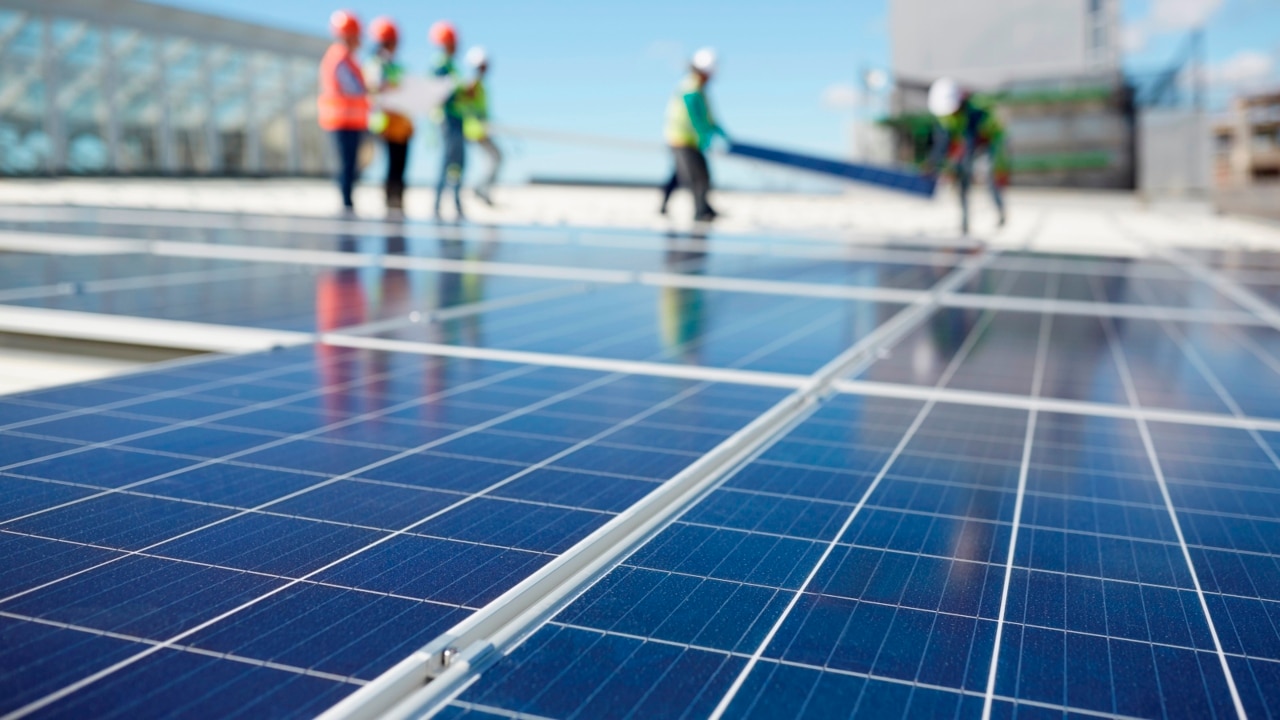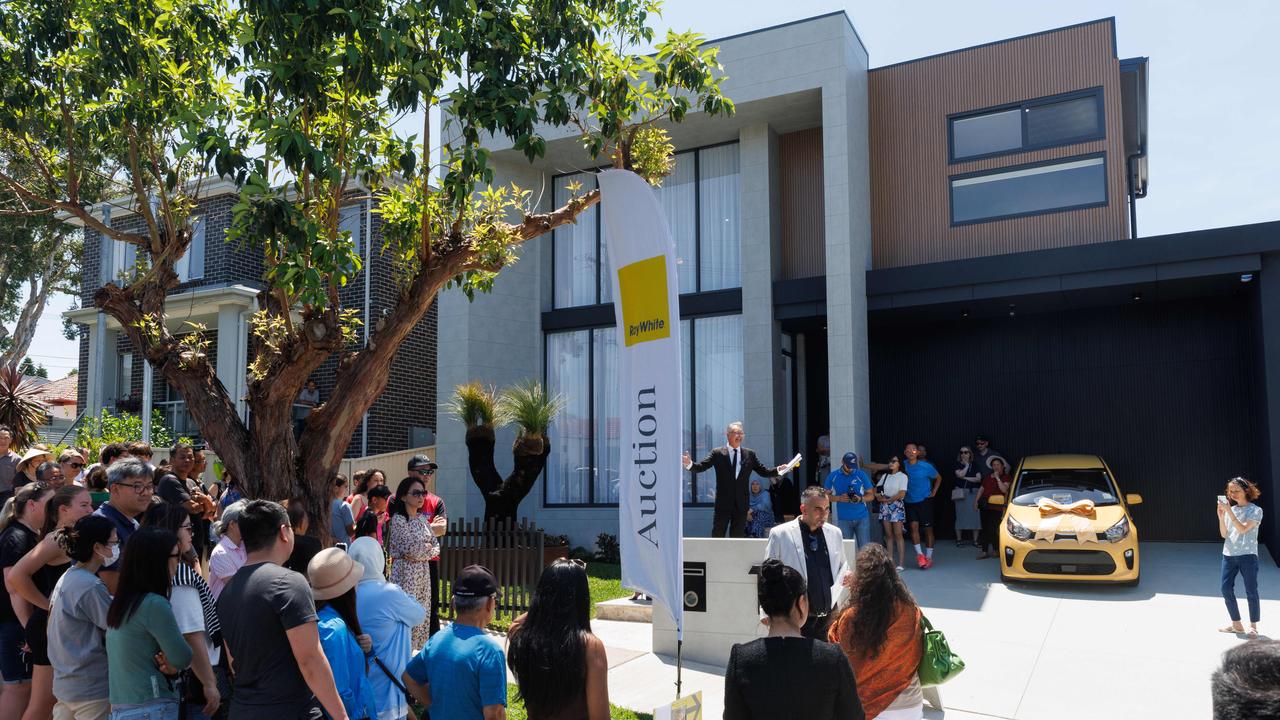Electricity demand hits record low as users seek bill relief
Record low demand for electricity during the third quarter will temper price rises next year, though industry sources warn summer will be make-or-break.

Business
Don't miss out on the headlines from Business. Followed categories will be added to My News.
Electricity demand fell to a record low during the three months to September 30, as benign weather and an uptick in rooftop solar cooled usage, which is expected to temper household and business bills.
The Australian Energy Regulator said as a result of the mild weather and increased renewable penetration, wholesale electricity prices in the National Electricity Market were less than half that seen at the same time last year, and in all regions except South Australia prices are similar to prices seen in the third quarter of 2021.
Households and businesses do not pay wholesale prices for their electricity, but the market is a key determinant in how many bills could rise by next year.
AER board member Jarrod Ball said the regulator is pleased to see prices in wholesale markets easing.
“Not only did we see energy prices and demand fall during the July to September period, but we also saw a number of quarterly records set for rooftop solar output, electricity demand and gas storage levels,” said Mr Ball.
“The National Electricity Market also saw black coal contribute 45 per cent to total output, its lowest share on record.”

Australian households and businesses have endured two consecutive years of price rises of more than 20 per cent, and signs of limited increases next year will be seized on by authorities and the government.
Electricity and gas price increases have been a major driver in inflation, which has forced the Reserve Bank to raise interest rates at a record pace.
Federal energy Minister Chris Bowen said the results vindicate Labor’s intervention into the market.
“Today’s report confirms the Albanese Government’s urgent action to cap coal and gas prices limited the worst impacts of last years’ forecast electricity price spikes from flowing onto household and business bills,” said Mr Bowen.
“It shows the lower wholesale electricity prices from increased penetration of cleaner cheaper, firmed renewable energy.”
However, energy industry executives fear the reprieve may be short-lived. Australia is set to endure an El Nino weather event that will bring hot, dry conditions across the country’s eastern seaboard that will likely stoke demand for electricity.
High demand will drive up the wholesale electricity price, a move that could be exacerbated should Australia’s ageing coal infrastructure suffer any unplanned outages.
The Australian Energy Market Operator said in August generators have embarked on significant maintenance in recent months to prepare but noted many coal power stations are approaching the end of their technical lifespan that increases the risk of outages.
A spate of coal outages in 2022 was a key driver behind Australian households enduring price outages this year.
Coal is still the dominant source of Australia’s electricity, generating about two-thirds of the country’s power.
In the event of unplanned outages, however, Australia could be aided by gas. The mild weather means Australia has ample gas in storage, which could be used to generate electricity beyond its traditional role as a so-called peaker when power plants are fired up when demand is high.
The emergence of El Nino shapes as a test of Australia’s energy transition. The country has set an ambitious target of having renewable energy generate 82 per cent of Australia’s electricity by 2030.
Australia hopes a rapid influx of renewable generation capacity will aid the country’s capacity to deal with unusual demand, though bringing new projects online has proven frustratingly slow.
Seizing on rare good news, Mr Ball said there had been recent new connections of renewable projects.
“As the energy transition progresses it was pleasing to see two wind farms, two solar farms and two batteries commence generating during the quarter and while they will add 800 megawatts of capacity once fully commissioned more is needed to keep pace with the planned coal plant retirements over the next decade,” he said.
More Coverage
Originally published as Electricity demand hits record low as users seek bill relief





